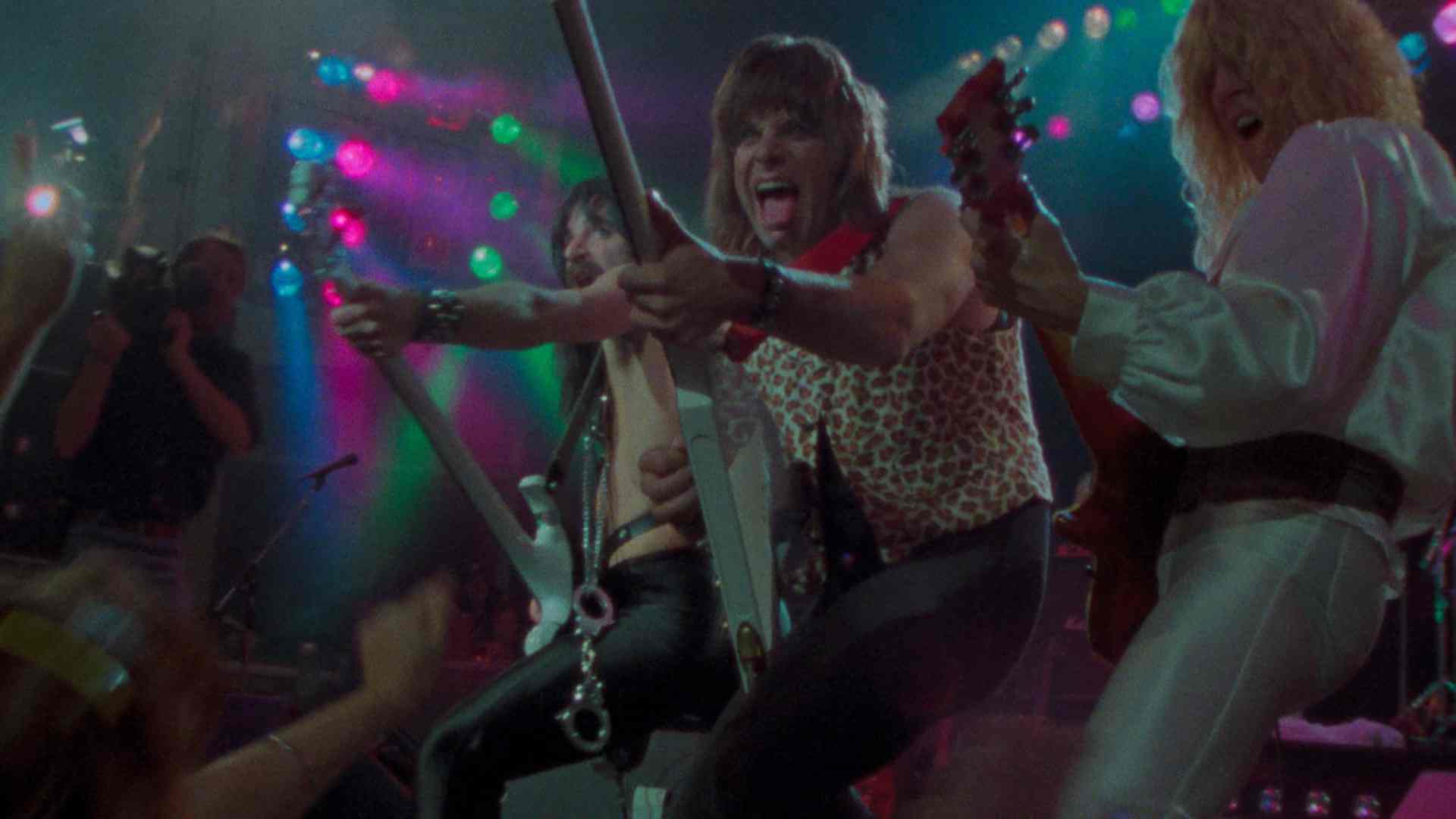Spinal Tap defined a real genre with a fake band
The rockers led by Christopher Guest played real music, shot direct cinema, and changed mock-docs forever.
Photo: Embassy Pictures
“It’s such a fine line between stupid and clever.” If movies have a mantra, this bit of philosophizing by Nigel Tufnel (Christopher Guest) and David St. Hubbins (Michael McKean) is as good as any. Along with Derek Smalls (Harry Shearer), and joined by a rotating band of musical collaborators that includes many drummers who suffered from calamitous outcomes, the members of Spinal Tap redefined the ridiculousness of rock ‘n’ roll while devoting themselves to reality.
Considered by many to be the 11th greatest film ever made, Rob Reiner’s This Is Spinal Tap began its cinematic tour on March 2, 1984 and, like a bad case of tinnitus, has continued to resonate until it heads back into theaters July 5, and into the Criterion Collection later this year, ahead of its sequel. Culled from over 100 hours of mostly improvised footage, the film spoofs the hard rock genre by following this trio of gormless Brits as they attempt to conquer the U.S. on a tour, only to eventually find themselves playing as a warm-up act for a puppet show.
Four decades later, the film’s precise satire has lost none of its sting. At once preposterous and completely in keeping with the excesses of the rock star lifestyle, it’s one of those rare parodies that ends up more truthful than their subjects. Given the vagaries of negotiating music rights clearances, gaining backstage access, or simply filming at a given venue, the history of popular music is often being written on film by those with a vested interest in maintaining the illusions of stardom. What makes Spinal Tap so brilliant is that it became an avatar for all those stories about performing artists that couldn’t be told without resulting in career suicide. This only works if there’s deep plausibility in the construction of the satire, a sense of reality opposing the highly polished portraits that bands are often treated to. This unvarnished comedy is buttressed by a band that can actually play, and songs written by the cast that rival almost anything from their targeted era.
One need only look to the poorly animated black blob blocking the cocaine booger in Neil Young’s nostril in The Last Waltz, or the members of Led Zeppelin solemnly riding boats and horses in The Song Remains The Same between carefully restaged “live” performances, to see how even the most celebrated music films have always had a tenuous connection to the truth of the music and lifestyle. Meanwhile, some projects that dared to get too close to the actual debauchery of the lives of these musicians saw their projects shelved, the most famous case being Robert Frank’s salacious Cocksucker Blues.
Much of Spinal Tap‘s brilliance is found in its use of the tools of direct cinema documentary filmmaking, drawing its form from masters such D.A. Pennebaker and the Maysle Brothers. Their films (Dont Look Back, Gimme Shelter) helped define rock canon, while Reiner, Guest, McKean, and Shearer, along with an all-star cast of improvising comedians, helped see beyond it. By turning the tools of truthtelling upon themselves, the film laid the groundwork for generations of other mock-docs that took a similar tact.
Spinal Tap‘s shooting script supposedly consisted of only a few locations and circumstances and little in the way of dialogue, allowing for the performers to inhabit their characters with deep verisimilitude. It’s in this context that Reiner’s filmmaker alter-ego Marty Di Bergi arrives. Festooned in a “USS Ooral Sea” cap that provides one of the film’s more subtly salacious jokes, Marty conducts a series of sit-down interviews with the musical trio as they reflect upon their career as they are about to set off on tour. Cinematographer Peter Smokler captured the proceedings with a documentarian’s eye, his sweeping handheld aesthetic mirroring Pennebaker’s lensing. Smolker, having worked on another celebrated film that skated on the border of truth and fiction, Peter Watkins’ Punishment Park, captures the improvisations with the clarity of a seasoned documentarian, presenting the vérité nature of the conversations as truthfully as any non-fiction film.
The same level of verisimilitude that Reiner and Smokler used in the filmmaking process was brought to the music. The central trio played their own instruments, and reshoots were done to ensure that the fingering of each guitar note was accurately portrayed. Like the songs of Tom Lehrer from a generation before, there’s an astonishing balance between the profound and the silly in just about every note played, while standing as actual works of art themselves. Songs such as “Stonehenge,” “Tonight I’m Gonna Rock You Tonight,” or “Hell Hole” are the equal, if not the better, of the Uriah Heep/Black Sabbath/Iron Maiden era of rock bombast that the band’s aesthetic echoes. While the backstory of the band was fictional, that’s really McKean, Shearer, and Guest tilling away during the sonic visit to “Sex Farm,” making the border between real and fake band all the murkier.
Spinal Tap floods this murkiness with jokes, balancing broad and subtle humor. While the jokes oscillate between the obvious and the cerebral, the sense of realism injects them with the natural absurdity of real-life situations, making their effect far deeper than more straightforward comedies meant to simply mine laughs.
While “mime is money” is an instantly quotable line, as is the immortal dialogue about dialing amps “up to 11” or the licking of love pumps, some more atmospheric jokes are far easier to miss as they quickly go by. When their Boston show is cancelled, the band’s manager Ian Faith (Tony Hendra, channeling everyone from Brian Epstein to Peter Grant) tells the band that they “shouldn’t worry about it, it’s not a big college town.” It doesn’t feel like a joke, more a funny throwaway that simply adds to the texture.
 Keep scrolling for more great stories.
Keep scrolling for more great stories.
